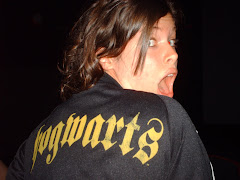Media is bursting at the seams with controversial representations of topics such as race, gender, and social class. Being as how Law and Order: SVU is inundated with stereotypes and enforced labels of certain groups of people, I knew that there was going to be many pressing issues to discuss if I found the right clip; and fortunately, I did. The one minute and forty- four second clip, which was recently aired on television, is loaded with vast amounts of golden instances to analyze race, ethnicity, and gender.
As the video begins, the detectives (Lake and Tutuola, played by Adam Beach and Ice-T) enter a pregnant Latino woman’s apartment. As they begin talking, the viewers discover that the “ghetto” Latino woman is a prostitute, and the detectives are interested in gathering information about a white prostitute that was recently murdered. Ice-T’s character has a few words with the woman using “street” terminology that Beach’s character does not understand. The video concludes as the woman presents the detectives with photographs of a pimp (ironically enough, himself a black man) beating the now-deceased white prostitute.
With that said, there are three main points that I would like to further analyze. The first issue is the choice of the particular races of the individuals involved in the crime: the Latino woman, the white woman, and the black man. It is interesting that the shows’ writers chose to include three different races in this crime; however, all three races are very stereotypical in their image, having attributes that are not likable or desired, all the while excluding the seemingly “cherubic” aura of the white male. The Latino prostitute is the typical “ghetto” woman. From the fist-large hoop earrings and big hair, to the accent and vocabulary, this woman is decked out to make sure the audience knows she is not of a high social standing, which is ultimately consequential of her own choices and actions. As for the white prostitute, she of course has long bleach-blond hair, skimpy outfits, and too much makeup. Even though she is white, she is still a trouble-making woman who is also not a good representation of American females. Finally, there is, of course, a black pimp who completes this threesome of no-good Americans. Although the audience does not actually get a chance to meet this man in the clip, we do see pictures of him both provocatively dancing with, and viciously beating the white prostitute.
This brings me to my second topic: the typical representation of the “angry black man” in which the pimp represents. This image immediately reminded me of Birth of a Nation by D.W Griffith. Similarly to Birth of a Nation, this image enforces the idea of the overly sex driven, indecent black man, who for years has haunted television and films in America, is clearly seen in this black male character through the pictures that are presented. Reena Mistry’s article on Gramci’s theory on race and hegemony also clearly talks about this type of image. Out of Hall’s three images, this idea of the black man fits perfectly into the picture of “the native,” who is a savage and cunning character. This clip correlates to Gramci’s idea of spontaneous consent when it comes to presenting black men and low class women in the way they are shown in the clip. Even though viewers do not see these acts as tolerable, they do view them as normal for “those kinds of people.”
My final element of conversation pertains to the terminology that is understood by both the Latino woman and Ice-T’s character, but not Beach’s character lake. Ice-T, who is clearly a black man, begins to use the word “Georgia” in a sentence that it would normally have no place in. When the Latino woman replies to his statement, it is obvious that she is familiar with this use of the word as well. However, lake (the Native American detective) does not comprehend the meaning. When Ice-T recognizes the look of confusion on Beach’s face he explains that “Georgia” refers to the act of a pimp sleeping with his prostitute before he sells her to other men. It is very fascinating that the writers chose to have the black detective understand this slang term, and yet have the white detective be “out of the loop” to this new-found language.
It is clear that this clip aligns itself perfectly with Reena Mistry’s article. It is enforced in the article that white men still control the media, and it holds true when it comes to Law and Order: SVU. With that said, it is definitely possible that there is hegemony buried in the episodes of this crime show. Piertese’s point that “stereotypes are reaffirmed when a hierarchy is in jeopardy,” would make sense in today’s society. With the mess of a nation that America is today, it could be concluded that the stereotypes that are presented in this show are made to cover up government problems (typical white male problems). This short clip alone opens people’s eyes, and allows them to see that there are many false representations buried not so much deeper than the surface of the many mediums of media.


